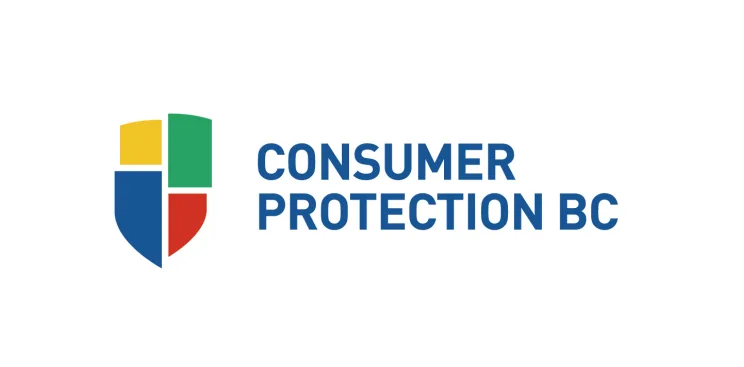
Do I have rights if a service provider I hired does shoddy work?
If you’re not happy with the work done by someone you’ve hired, you have legal rights and options.
What you should know
“We hired a company to refinish our hardwood floors. They over-sanded sections of the floor, leaving big dips, and the finish started peeling off the next day. We complained, but they refused to do anything about it. We hired another company to redo the work. They agreed with us that the first company didn’t use reasonable care and skill in doing the work. We eventually succeeded in getting the first company to pay the bill for the work to be redone.”
– Vivian, Vancouver, BC

When you hire someone to perform a service, you are making a contract. As parties to the contract, you and the other party have certain legal rights and obligations. If a party does not do what they said they would under a contract, they are in breach of contract.
The law offers three different solutions when a contract has been breached.
The contract can be cancelled. The parties are restored to their original situation.
The party in breach can be ordered to pay damages to compensate the other party for any loss suffered. The damages are designed to put the injured party in the same position as if the contract had been successfully performed.
The party in breach can be ordered to perform the contract. The party is basically told they have to do what they promised in the contract.
Let’s say you hire a roofing company to install a new roof on your home. The roof they install is patchy and the tiles start falling off days later. The roofing company would be in breach of contract. The law offers these potential solutions.
The contract could be cancelled. This would see the contract ended. Because the contract involves services, the parties can’t be truly restored to their original situation — the services can’t be returned. The roofer is entitled to the value of services they performed. Those services might not be worth much, given the poor quality of the roof.
You could be awarded damages to compensate you for any loss. This would see the roofer have to pay for the roof to be repaired or replaced. As well, if their substandard work caused any further damage (let’s say the roof leaked and caused water damage to the living room carpet), the roofer would also have to compensate you for this loss.
The roofer could be ordered to perform the contract. This would see the roofer have to repair or replace the roof.
Which solution applies in a given situation depends on what is wrong and what kind of agreement was made.
One factor is whether any breach relates to a condition in the contract. A condition is an essential term in the contract, a term that is so important that without it one or other of the parties would not enter into the contract. When a condition is broken, the contract can be cancelled.
When a non-essential term of the contract is broken, the injured party can recover damages but the contract cannot be cancelled.
When you contract with someone to perform a service, the person you hire must:
use reasonable care and skill
do the work in a "proper and workmanlike manner"
use materials of reasonable quality
In the example of the roofing company you hire to install a new roof on your home, the company must use reasonable care and skill in doing the work, the work must be done in a proper and workmanlike manner, and they must use roofing tiles of reasonable quality. By installing the roofing tiles in a haphazard, sloppy fashion such that they start falling off within days of the job, the company would be in breach of its duties under the contract.
In addition, many companies offer a warranty or guarantee for the service they provide. This is their promise about the quality of their services and what they will do if there are problems. Read any warranty or guarantee to see if it covers the problem.
A service provider is not allowed to mislead you to convince you to hire them. If you relied on a representation by the service provider that was misleading or deceiving, you may be able to cancel the contract if the representation related to a condition in the contract.
If the representation related to a non-essential term of the contract, you would be entitled to damages to compensate you for any loss you suffered.
If the service provider did something unfair or knowingly took advantage of you, any agreement you sign is not binding on you. You can cancel the contract.
Work out the problem
Once you understand your legal rights and options, decide what outcome you are seeking. Do you want the service provider to put things right (that is, redo or repair the work)? Do you want them to reduce their bill? Do you want them to stop their work and cancel the remainder of the contract?
Collect copies of any documents, such as any contract, receipts, correspondence, advertising, or warranty.
Prepare notes of the problem. Include:
details of the problem, including when you first noticed it
anything the other party said that you relied on in making the contract
what outcome you are seeking
Let the service provider know you’d like to discuss how things are going. Consider asking to speak with a manager or owner if that’s appropriate.
Clearly explain your problem. Be firm and businesslike, but polite. Let them know you understand what you’re entitled to. Let them know the outcome you’re seeking.
Make notes of your conversation. Date your notes.
If discussing the situation with the service provider doesn’t resolve the problem, the next step is to send a complaint letter to them.
The letter should cover these points:
a description of what was agreed to (include the date)
details of the problem, including when you first noticed it
what you have done to try to resolve the problem
what you want them to do to resolve the problem
You can use one of our template letters to write to the service provider: to complain about the poor standard of a service or to cancel a contract due to poor work or due to late delivery.
You should give a time frame for them to address the problem. Usually 10 working days is sufficient. You can write something like this:
I look forward to your reply and to resolving the problem, and will wait until ___________________ [date] before taking my next step. Please contact me as soon as possible at the above address or by telephone at ____________ [your phone number].
You can also say what you will do next if they do not address the problem. For example, you might say that your next step will be to file a complaint with the Better Business Bureau or Consumer Protection BC, or to seek legal advice.
If you want to be sure the other party receives your letter, send it by registered mail or courier.
Keep a copy of your letter.
If you still do not get a satisfactory response from the service provider, you can file a complaint with a consumer protection agency.
For certain types of problems and contracts, one option is Consumer Protection BC. They investigate situations where the other party may have done something unfair or knowingly took advantage of you. As well, they can help resolve problems involving future performance contracts (where you hire someone to perform a service at a time in the future) and direct sales contracts (such as door-to-door sales).
Another option is the Better Business Bureau, which receives complaints about local businesses.
If you cannot solve the problem with the above steps, your next step may be to take legal action. You can consider suing the other party for breach of contract. This step can be costly and time-consuming. You should look at all other options before suing.
If you decide to sue, note that there are time limitations on filing lawsuits. If you don’t have a lawyer, there are options for free or low-cost legal help.
Who can help

Consumer Protection BC
Assistance relating to certain types of consumer problems and contracts in BC.

Better Business Bureau (BBB)
Receives complaints about local businesses that are members.

Competition Bureau
Deals with complaints about false or misleading advertising.

Access Pro Bono’s Everyone Legal Clinic
Clinicians provide affordable fixed-fee services on a range of everyday legal problems.

Lawyer Referral Service
Helps you connect with a lawyer for a complimentary 15-minute consult to see if you want to hire them.

BC Legal Directory
Search for a lawyer by community or legal issue. From the Canadian Bar Association, BC Branch.

